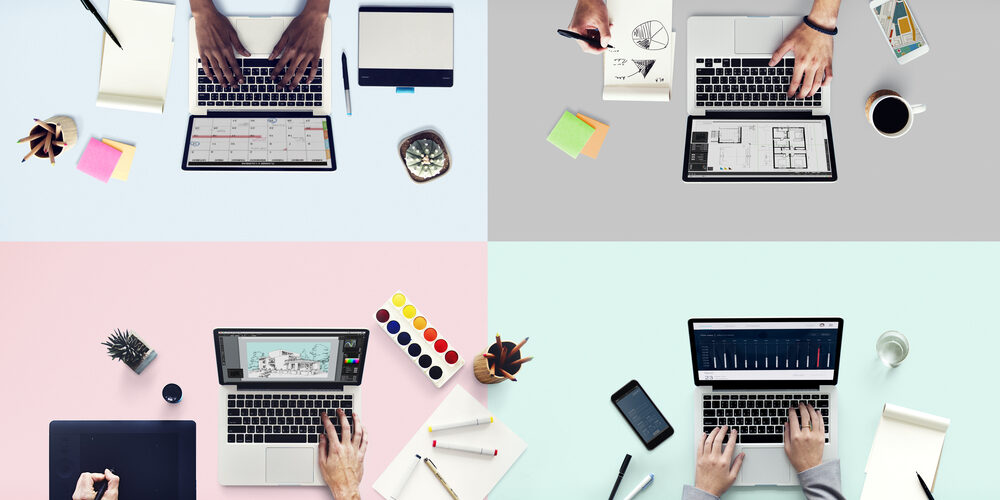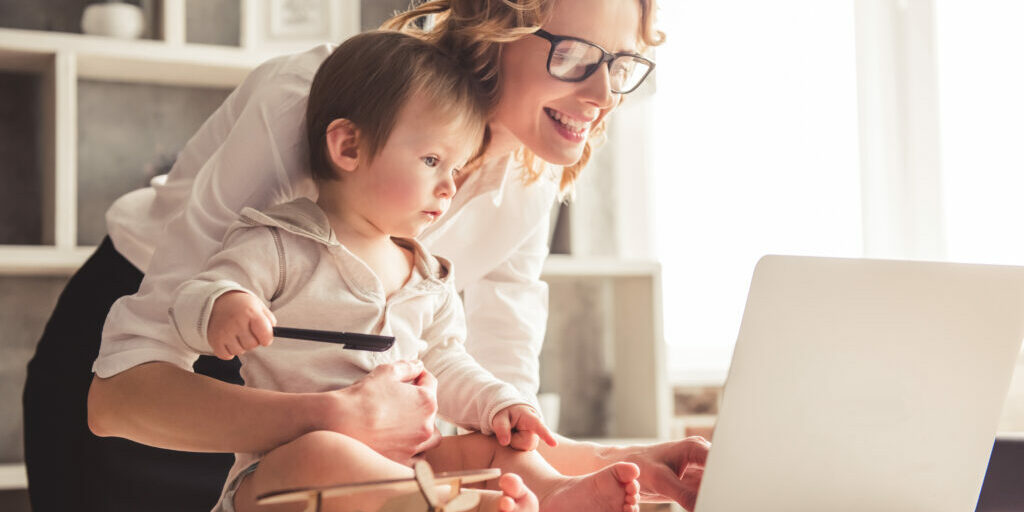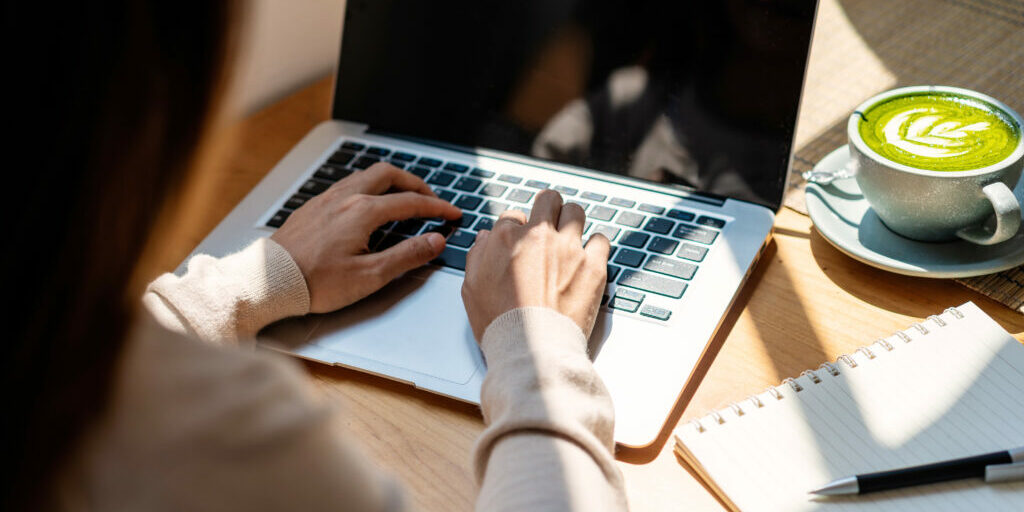The current circumstances may have given many Australians their first experience of working prolonged, full time periods online from their home or personal space.
Working from home is almost a dream come true for most of us. There are the obvious perks; no travel time so more sleep (I know I’m sometimes guilty of waking up at 8:55am to stumble downstairs for my 9am meeting), and more time with family or housemates, (you literally cannot physically head outside your home and hang out with anyone else). There is also the never-ending temptation of your fridge or your quarantine snacks enticing you to nibble out of boredom.
However, all these perks will inevitably challenge your productivity because of the abundance of distractions and the difference in physical space influencing your headspace. I know I’ve had days where I’ve struggled, so here are some tips that I’ve found and tried which have worked so far for me:
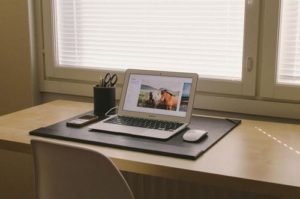 Find a clutter-free space somewhere at home and set up your workstation as you would if you were physically in your office; whether this be setting up a desk in a corner of your loungeroom or balcony, and/or placing a pen stand and post-it-notes that mimic the placement of your office desk, it will help your body recognise and settle into work mode, not lounge mode.
Find a clutter-free space somewhere at home and set up your workstation as you would if you were physically in your office; whether this be setting up a desk in a corner of your loungeroom or balcony, and/or placing a pen stand and post-it-notes that mimic the placement of your office desk, it will help your body recognise and settle into work mode, not lounge mode.- Remind your housemates of your office work hours to minimise distraction and noise from them; make sure everyone is clear and respectful of each other’s professional work times to maximise each other’s efficiency.
- Try to be as ergonometric as possible in your designated workspace; although most of us could not lug our moving desks, large screen monitor and foot rest home, we can use ordinary household items such as books or little stools to prop up our laptops and feet to make sure that we are working comfortably without straining our eyes and body.
- Set reminders to get up from your chair to take a quick walk or stretch; according to the Australian Heart Foundation, for the sake of your heart and muscle health, they recommend getting up every 30 minutes to take a quick walk to the bathroom or pour yourself a glass of water (also good to rehydrate every so often).
- Set lunch and break times as you would if you were in the office; this will help you continue your office routine and restrict the temptation to snack so often.
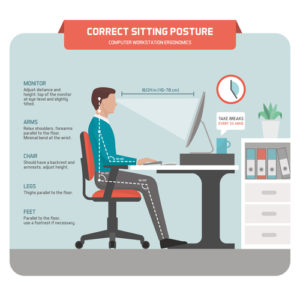 Keep in contact with members of your team or others from your work; most companies have resorted to increasing team meeting frequencies but if you’re feeling unmotivated to finish a task, calling a co-worker is a good way to have relevant external support.
Keep in contact with members of your team or others from your work; most companies have resorted to increasing team meeting frequencies but if you’re feeling unmotivated to finish a task, calling a co-worker is a good way to have relevant external support.- Shut off and tuck away your work materials at the end of the working day; physically putting away and turning off your professional work equipment enables your body and mind to withdraw from office-mode to home-mode even while you are still physically at home. This will reprieve your mind from any stressful work responsibilities and refresh your mind for a new start the next day.
- Keep your attitude and spirits high; you may begin to feel distant or lose morale and motivation to keep up your productivity, but don’t forget that we are all on the same boat here. Remember, you working from home is to help protect you, your family and vulnerable Australian lives. You maintaining a professional constant not only shows your work ethic but that you are part of a bigger team trying to make everything go back as close to normal once social distancing measures are lifted. You are doing great.
There’s also a quote floating around Instagram and Twitter which I came across that I’d like to emphasis for you all –
“You are not working from home; you are at your home during a crisis trying to work”.
So, go easy on yourself.
Our SKL members have also shared some of the habits and tips they’re using at home:
John:
“Staying on-top of internal and external meetings via phone or Microsoft teams which is especially important to maintain office team relationships as close to normal. That relaxed banter / discussion is important to team morale.”
Aliza:
“Avoid distractions. Put your personal phone away and set it to do not disturb. Mute all notifications. You put away one hour for calls, put everything on mute and just focus on making calls.”
Jenny:
“Plan your day – when are you working and when is it time for a break; try and have some structure. Make time for exercise and to move around.”
Aaliyah:
“Touching base with others in the office regularly. Making sure to set up in a quiet and non-distractive area at home.”
Eleanor:
“Work when you’re at your most productive. I find that if I get out of bed at 7am, to start working then, not only does it lead to better quality work being produced, but frees up my afternoon as well.
Take set breaks. It can be easy to let the guilt of being in your own home lead to avoiding breaks. Going for a walk outside or spending time with the family at home I have found to be a great way to step away from work for a bit and come back more alert and energised.”
Jas:
“Meditate.
Have firm day plans.”
Keytan:
“Mimic a typical work day at the office as much as possible; get coffee at similar times, dress up in office clothes and eat the same food at the same time as you would in the office
Create day plans or schedules to create structure for your day.”
Kate:
“If you get easily distracted then set little rewards for when you have finished a task or group of tasks, or after working for an hour as a break as motivation to keep going in the meantime.
Things like a healthy snack or drink, some form of exercise or stretching, send a quick message to a friend or colleague, or a quick chat with someone.”
Hopefully, some of these tips are able to give you some inspiration and help. Take care!
